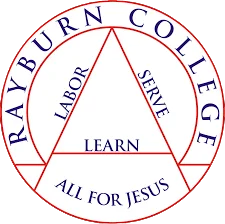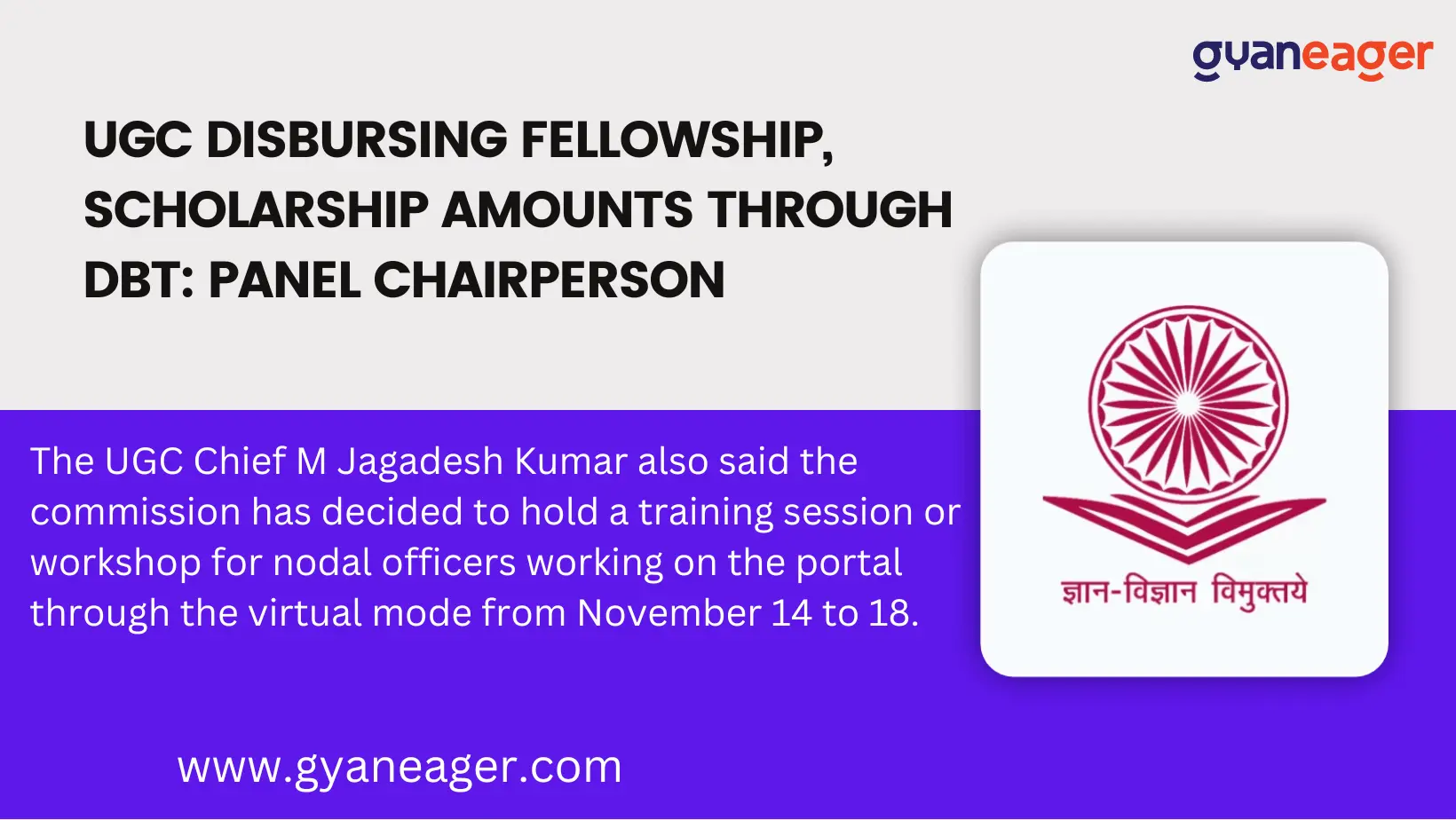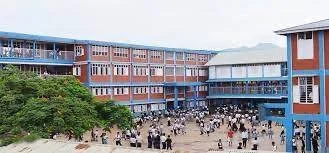- Home
- About
- Technical Course
-
Top Courses
- Bachelor of Technology
- Bachelor of Business Administration
- Bachelors Of Computer Applications
- Master of Technology
- Master Of Business Administration
- Master Of Computer Applications
- Diploma in Engineering
- Master Of Commerce
- Master Of Science
- Bachelors Of Commerce
- Master of Arts
- Bachelor of Arts
- Bachelor of science
- Data Science
- Digital Marketing
- MBA IN HR
- MBA IN MARKETING
- Blogs
- News
- Study Abroad
- Career Counseling
- Contact

Rayburn College
In the Indian state of Manipur, Churachandpur is where Rayburn College is located. RC was founded in 1994 and is a private institution. The UGC has approved the college....
Churachandpur, Manipur
UGC
Estd, 1994
Admission Open!
Gyaneager Rating - 7/10
Receive Free Courses
Overview
In the Indian state of Manipur, Churachandpur is where Rayburn College is located. RC was founded in 1994 and is a private institution. The UGC has approved the college.
Rayburn College provides 14 courses in three different streams: science, commerce, and the arts. B.Com, BA, and BSc are among the popular degrees offered by Rayburn College. In addition to having a strong teaching methodology, Rayburn College is a pioneer in both research and innovation. It is clear from Rayburn College's infrastructure, extracurricular activities, and national and international relationships that emphasis is placed on activities outside of the classroom. The placement at Rayburn College is diverse, offering choices for employment in the corporate, public, and entrepreneurial sectors.
Course & Fees
Rayburn College Fees Structure and List of Courses
|
Course |
Fees |
Duration |
|
B.Com. (Bachelor of Commerce) |
INR 5,800 (Annually) |
3 Years |
|
B.A. (Bachelor of Arts) |
INR 5,800 (Annually) |
3 Years |
|
B.Sc. (Bachelor of Science) |
INR 5,800 (Annually) |
3 Years |
Fee Structure for Top Courses at Rayburn College
- The annual B.Com. (Bachelor of Commerce) tuition at Rayburn College is INR 5,800.
- The annual fee for a B.A. (Bachelor of Arts) at Rayburn College is INR 5,800.
- The annual B.Sc. (Bachelor of Science) tuition at Rayburn College is INR 5,800.
Popular Courses at Rayburn College with Fees
14 courses are offered by Rayburn College. Candidates can view a list of Rayburn College's best courses, along with information on duration and tuition.
- The annual cost of the Bachelor of Commerce in Accounting at Rayburn College is INR 5,800.
- The annual cost of the Rayburn College Bachelor of Commerce in Business Studies is INR 5,800.
- The annual cost of the Bachelor of Commerce in Business Studies at Rayburn College is INR 5,800.
- The annual cost of the Bachelor of Arts in Geography at Rayburn College is INR 5,800.
- The annual cost of the Bachelor of Arts in History at Rayburn College is INR 5,800.
- The annual tuition for the Bachelor of Arts in Political Science at Rayburn College is INR 5,800.
- The annual cost of the biology bachelor's degree at Rayburn College is INR 5,800.
- The annual tuition for the Rayburn College Bachelor of Science in Chemistry is INR 5,800.
- The annual cost of the Bachelor of Science in Mathematics at Rayburn College is INR 5,800.
Admissions
BA Admission RC
Every pupil who has successfully completed intermediate (10+2) in any subject.
RC Admission B.Com
Every pupil who has successfully completed intermediate (10+2) in any subject.
BSc Admission RC
Any student who has successfully completed the intermediate (10+2) science course.
Cut-off
.
Placemenet
Placement and Soft Skill Development Cell
Identification of skill gaps and conscious, methodical, persistent effort to close them are required to carry out complicated tasks involving cognitive, technical, and interpersonal abilities. This is known as skill development. It improves a person's ability in any field. It is a type of education that is focused on helping students develop the skills needed to execute a certain job. To complete a work properly, a person has to possess a variety of talents. Thus, skill development improves a person's proficiency in any field while fostering their skills to create a professional network. It is essential to a worker's life and their ability to advance in their careers. In an effort to help young people achieve these abilities, Rayburn College has taken the lead by offering training and employability programs. The purpose of this effort is to increase the likelihood that young people will find jobs in a variety of economic sectors by giving them the necessary skill sets and marketable skills.
The knowledge, abilities, and development acquired via study or training can all be referred to as education. Our nation's educational system has advanced significantly during the past ten years, broadening its area of focus. According to the 2011 census, Manipur has an around 76% literacy rate. But the disparity between the employment rate and the literacy rate is widely known. This is due to the fact that employability skills do not necessarily follow from literacy. For instance, the educational system in Manipur emphasises rote learning and uses a written exam system for grading. Conceptual comprehension, critical analysis, and idea application are impossible in such a framework. There is practically any room in the curriculum for practical courses that students may utilise in their daily lives.
The system has realised the necessity for employability skill development in the twenty-first century, and along with it, the expansion of markets, space for trade, and the creation of self-employment. The process of developing skills can also be thought of as ongoing. To complete a work properly, a person has to possess a variety of talents. Thus, skill development improves a person's proficiency in any field while fostering their skills to create a professional network. An employee's life includes skill development and training, which are essential for career advancement.
As a youth-focused educational facility, Rayburn College strives to build these abilities and has taken the lead by introducing training and employment programs like:
- TATA Consultancy Services (TCS) and TATA Affirmative Action Program (TAAP);
- In conjunction with North-Eastern Skill & Entrepreneurship Development (NESEED) Foundation, a partner under NSDC, training in trades like electrician, construction & painting, poultry farming, make-up artistry, and embroidery;
- Basic computer education in collaboration with Churachandpur's National Institute of Electronics & Information Technology (NIELIT);
- King Sejong Institute in Imphal is offering a Korean language course.
The purpose of this effort is to increase the likelihood that young people will find jobs in a variety of economic sectors by giving them the necessary skill sets and marketable skills. Additionally, this helps people increase their productivity by teaching them soft skills such as corporate etiquette and communication, resume-building techniques, interview techniques, analytical abilities, and computer skills like MS Office and web browsing.
Even the socially and economically excluded adolescents from the outlying areas of society, in our opinion, can learn skills that will improve their chances of finding job and generating revenue if given the proper opportunities and training. Young people are empowered when their skills are developed and they receive an education; with time, they will be able to support themselves. The trained youngsters will soon be able to lift their families out of poverty, participate in the process of social inclusion, and live better, more honourable lives.
Students also Explore This

4.4
(20,230)
Rayburn College
HYDERABAD, Manipur | UGC
In the Indian state of Manipur, Churachandpur is where Rayburn College is located. RC was founded in 1994 and is a private institution. The UGC has ap...
interested in this College ?
Only a certified mentor will assist you
Ask A QuestionTop Courses
Related News

Is the BHU admissions counseling starting soon
2022-10-07 06:16:56

Subharti University Distance Education Admission 2022-23 | Last Date Admission
2022-11-19 17:51:36

UGC Disbursing Fellowship, Scholarship Amounts Through DBT
2022-11-19 18:06:12
Speak to an admission counsellor
Subscribe To Our News Letter
Get College Notifications, Exam Notifications and News Updates
Top Courses
- MBA IN MARKETING
- MBA IN HR
- Digital Marketing
- Data Science
- Bachelor of science
- Bachelor of Arts
- Master of Arts
- Bachelors Of Commerce
- Master Of Science
- Master Of Commerce
- Diploma in Engineering
- Master Of Computer Applications
- Master Of Business Administration
- Master of Technology
- Bachelors Of Computer Applications
- Bachelor of Business Administration
- Bachelor of Technology
Top Colleges
- Ignou Distance Education
- Sukanta Mahavidyalaya
- ICFAI University, Directorate Of Distance Education
- Vardhman Mahaveer Open University
- Uttarakhand Open University
- University Of Petroleum And Energy Studies
- Tamil Nadu Open University
- Symbiosis University of Applied Sciences
- Sri Venkateswara University
- Prince Shri Venkateshwara Padmavathy Engineering College
- Suresh Gyan Vihar University , Distance Education
- R P Sharma Institute of Technology
- Patna Women's College
- NMIMS Global Access School for Continuing Education
- National Institute of Fashion Technology
- Madhya Pradesh Bhoj (Open) University
- MIT School Of Distance Education
- MATS University
- Mangalayatan University
- Manipal University Online
Blogs
- Online Education: Guide for Flexible & convenient learning Options
- Universities must have UGC approval before they can offer open, distance learning courses.
- Comparing the top three online MBA programmes in India
- Spot Round 2 Dates For DU Undergraduate Admissions 2022: Dates on the Schedule are Here.
- Is Subharti's college degree acceptable for positions in the government?
- Why go for Subharti University's distance learning programme?
- Is Subharti University a Reputable Distance MBA School?
- How can I enrol at Subharti University?
- IGNOU MBA Admission 2023: Form, Fee, Requirements, and Timeline
- IGNOU BCA Admission 2023 | Final Date To apply & Fee:
- IGNOU BA Admission 2023: Form, Fee, Requirements, and Timeline
- Eligibility, costs, and application form for IGNOU BBA (Retailing) Admission 2023
- Admission to the IGNOU PhD in Political Science 2023 | Eligibility and Costs
- Registration, Exam Date, Format, Syllabus, Practice Papers, and Cutoff for CUET 2023
- 10 Tips on making friends when studying abroad
- Online BBA Finance and Marketing: Course Details, Fee & Eligibility
- Top Career Options after BBA: What to do After BBA?
- 6 Things to Research When Choosing an Online University
- Best Career Options for Science Students In 2022
- Benefits and Scope of Pursuing the Executive MBA course
The intend of Gyaneager is to provide unbiased precise information & comparative guidance on Universities and its Programs of Study to the Admission Aspirants. The contents of the gyaneager Site, such as Texts, Graphics, Images, Blogs, Videos, University Logos, and other materials contained on gyaneager Site (collectively, “Content”) are for information purpose only. The content is not intended to be a substitute for in any form on offerings of its Academia Partner. Infringing on intellectual property or associated rights is not intended or deliberately acted upon. The information provided by Gyaneager on www.gyaneager.com or any of its mobile or any other applications is for general information purposes only. All information on the site and our mobile application is provided in good faith with accuracy and to the best of our knowledge, however, we make nor representation or warranty of any kind, express or implied, regarding the accuracy, adequacy, validity, reliability, completeness of any information on the Site or our mobile application. gyaneager & its fraternity will not be liable for any errors or omissions and damages or losses resultant if any from the usage of its information.
© Copyright 2026 . All Rights Reserved
Talk To a Career Counselling



